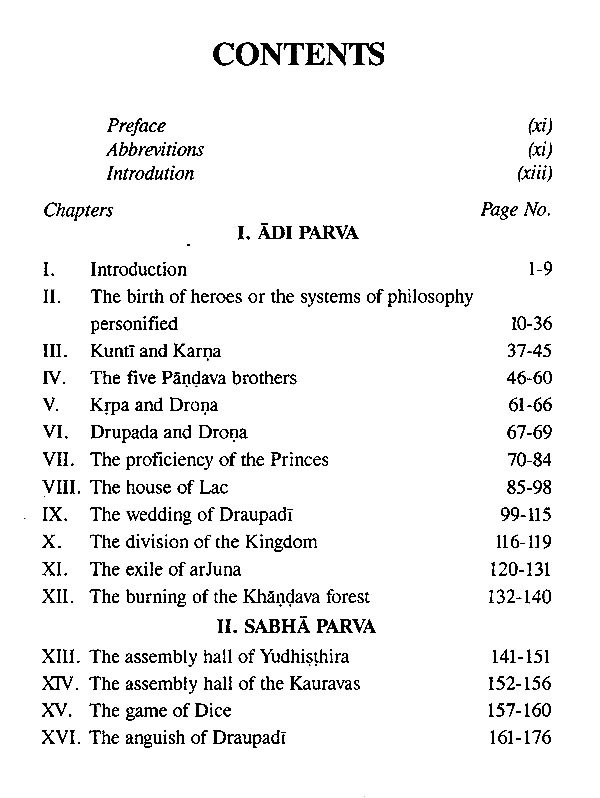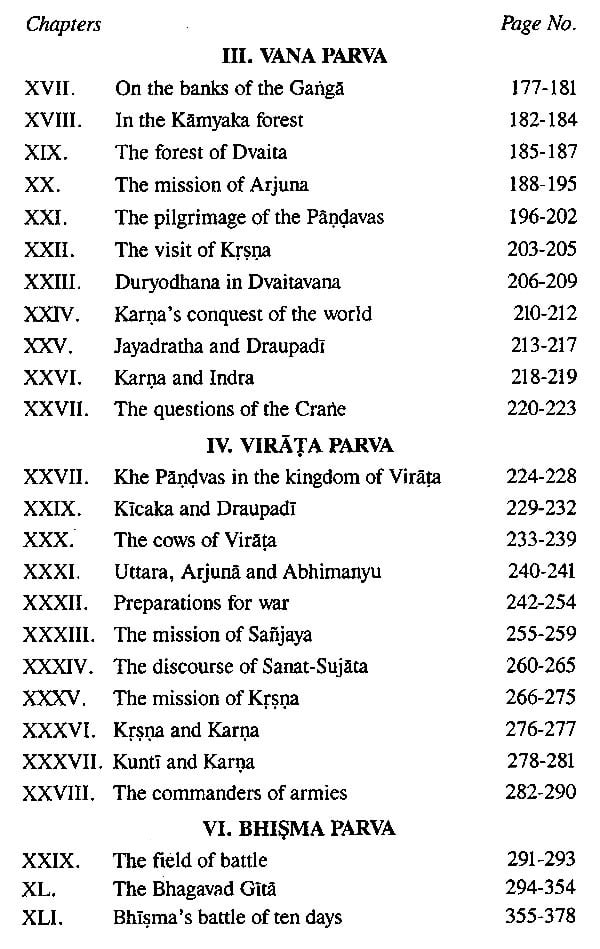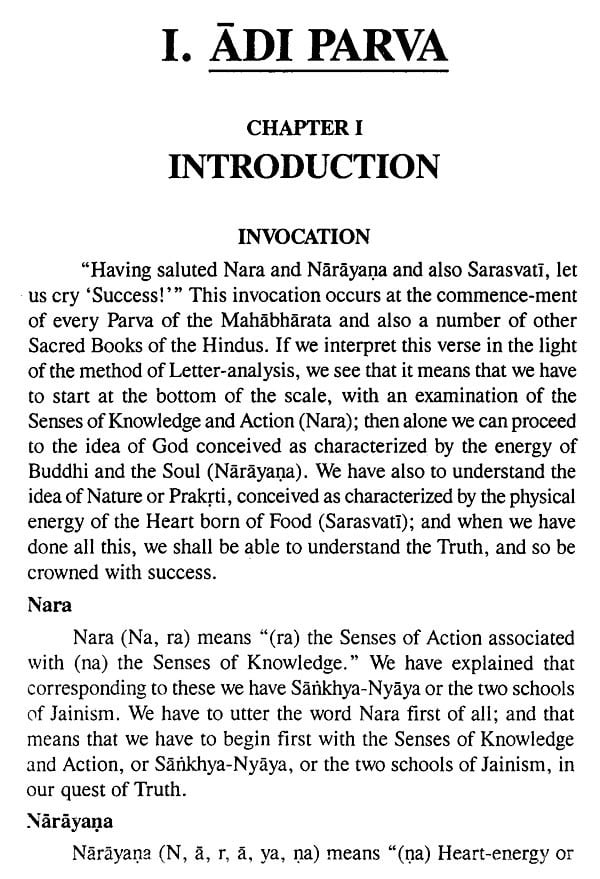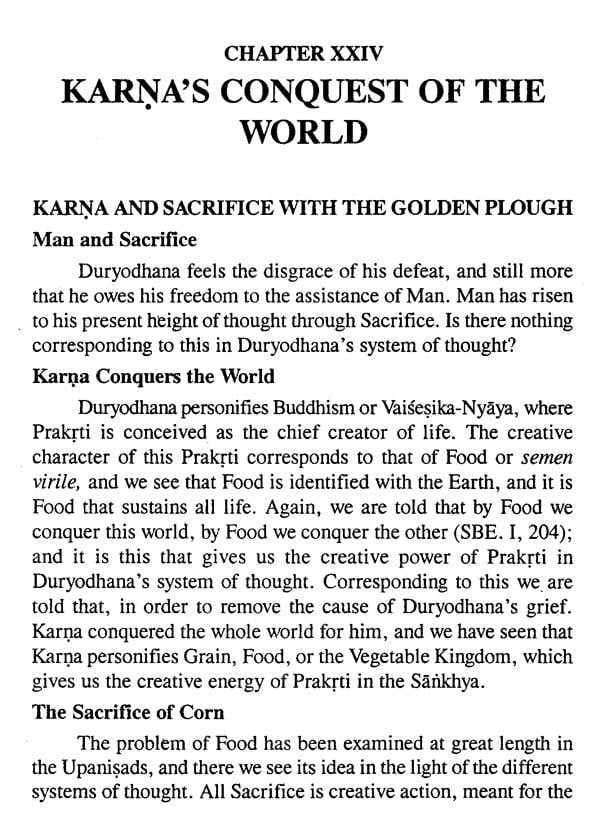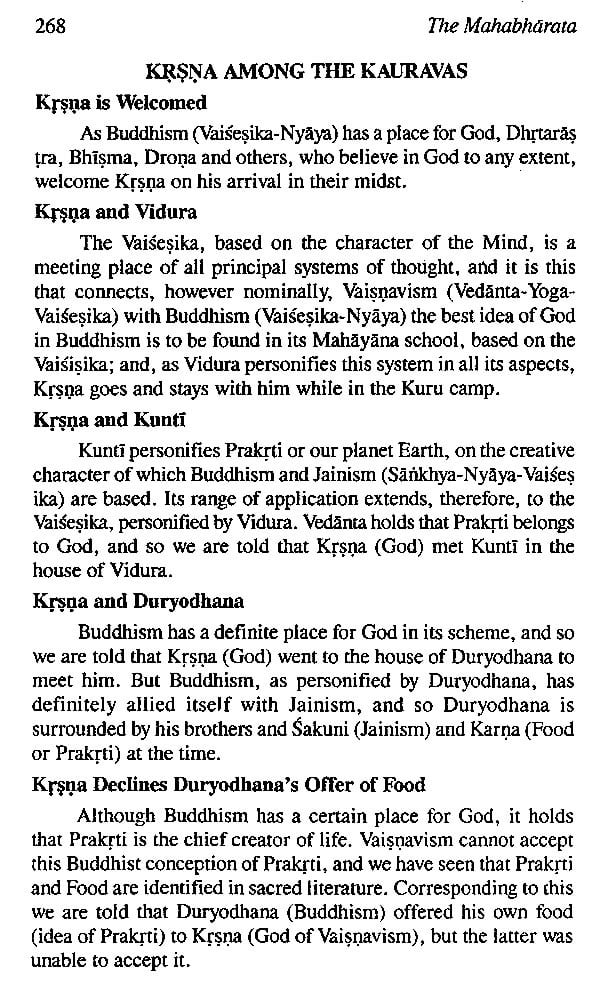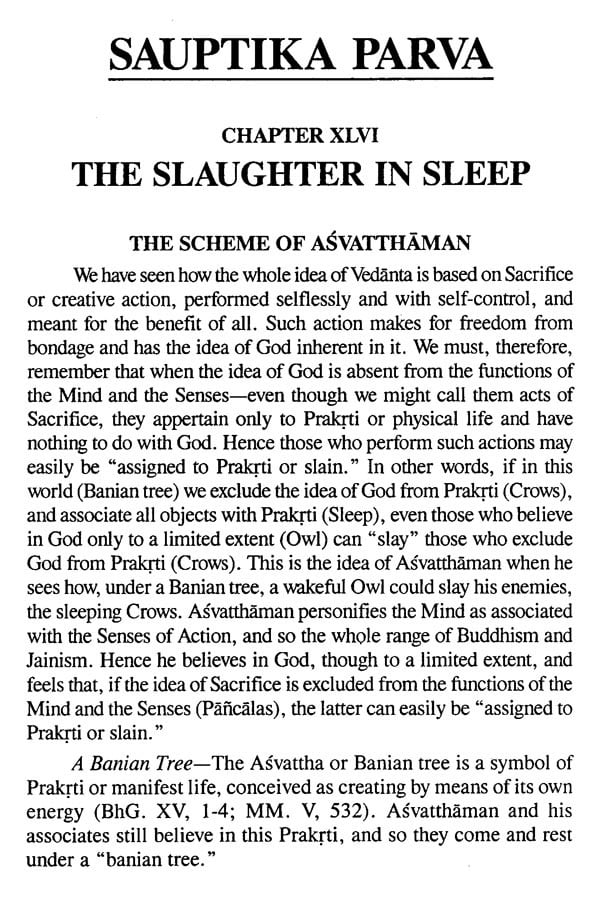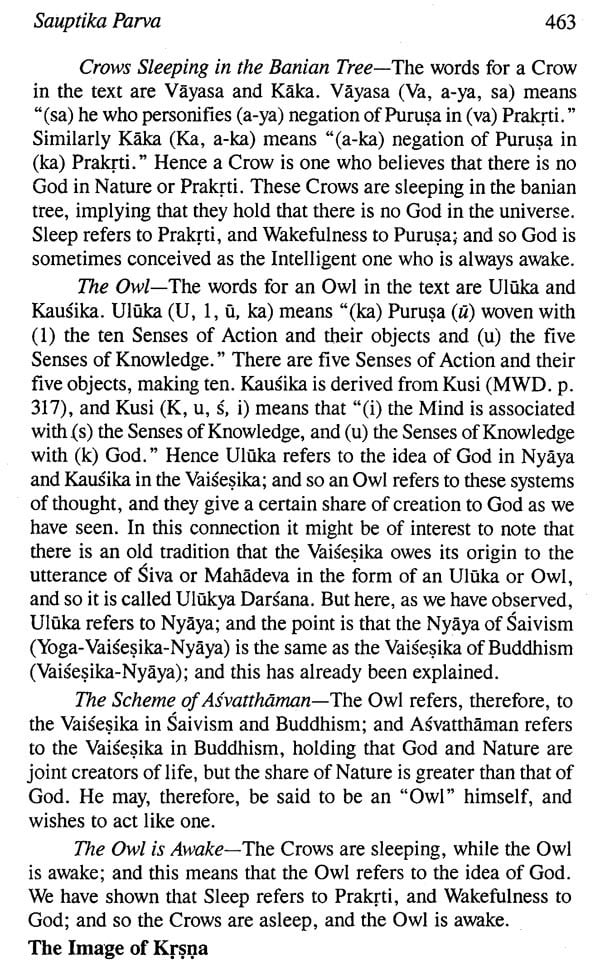Preface The Mahabharata is so widely known as a great and fascinating story of ancient India, that perhaps an apology is needed for interpreting it as a picture of pure Philosophy. But I hope lovers of the story would find their interest enhanced and no diminished by this presentation. It has, however, been suggested to me to indicate the best manner of approach to the subject. For obvious reasons I have had to refer to Vedic literature, Upanisads, and the Systems of Hindu Philosophy, and base the whole idea of the work on principles, energies, and laws; for this is what the Mahabharata really is. But I have tried to be as simple and concrete as possible. The reader would be well advised in going through the Introduction first, and acquainting himself with the principles, of the Six Systems of Hindu Philosophy as soon as possible; and when this is done, he would find the interpretation of the Story easier than he imagines. Should he, however, find it difficult to grasp the idea of the Systems of Philosophy all at once, he might glance through them, and pass on to the Construction of the Story of the Mahabharata and return to the philosophical Systems afterwards. Once he has realized that the Story is a picture of Philosophy, it would be easy for him to understand the idea of the whole.
Then it is necessary to have an elementary idea of the form, structure and action of the organic Cell; for it is the Cell that constitutes the basis of all theories and speculations of the Hindus, from the tiniest forms of life to Brahmanda, the Golden Egg of the Creator of the universe.
Introduction Hinduism, as the ancients conceived it, was a great University of Religions, where they studied Nature in a scientific and systematic form, founded their schemes of Philosophy on its essential laws, reared their systems of Religion on both, and applied them to the use of the average man in his work-a-day life. They believed that there was a Science of Life, that there was one Law made manifest in many forms, governing the universe; and so, by extending the truths of the Known to the Unknown, they constructed their theories of this and the other world, comprehending all that the human mind can understand or imagine and he who entered the portals of this great University and studied the Law of Life in a systematic and scientific manner, was a Hindu. All truth arises from doubt; we ask questions when we think; and all knowledge is born when, not knowing, we wish to know. We begin with denial or doubt, and end with conviction of truth; but to come to this conclusion we must pass through a number of stages of thought. This must necessarily be so when we attempt to study the whole universe, and the origin and end of things. The problem is so vast. that it cannot be examined from a single point of view; and the different ways in which we can make the attempt, give us the different schemes of Hindu Philosophy and Religion.
**Contents and Sample Pages**

